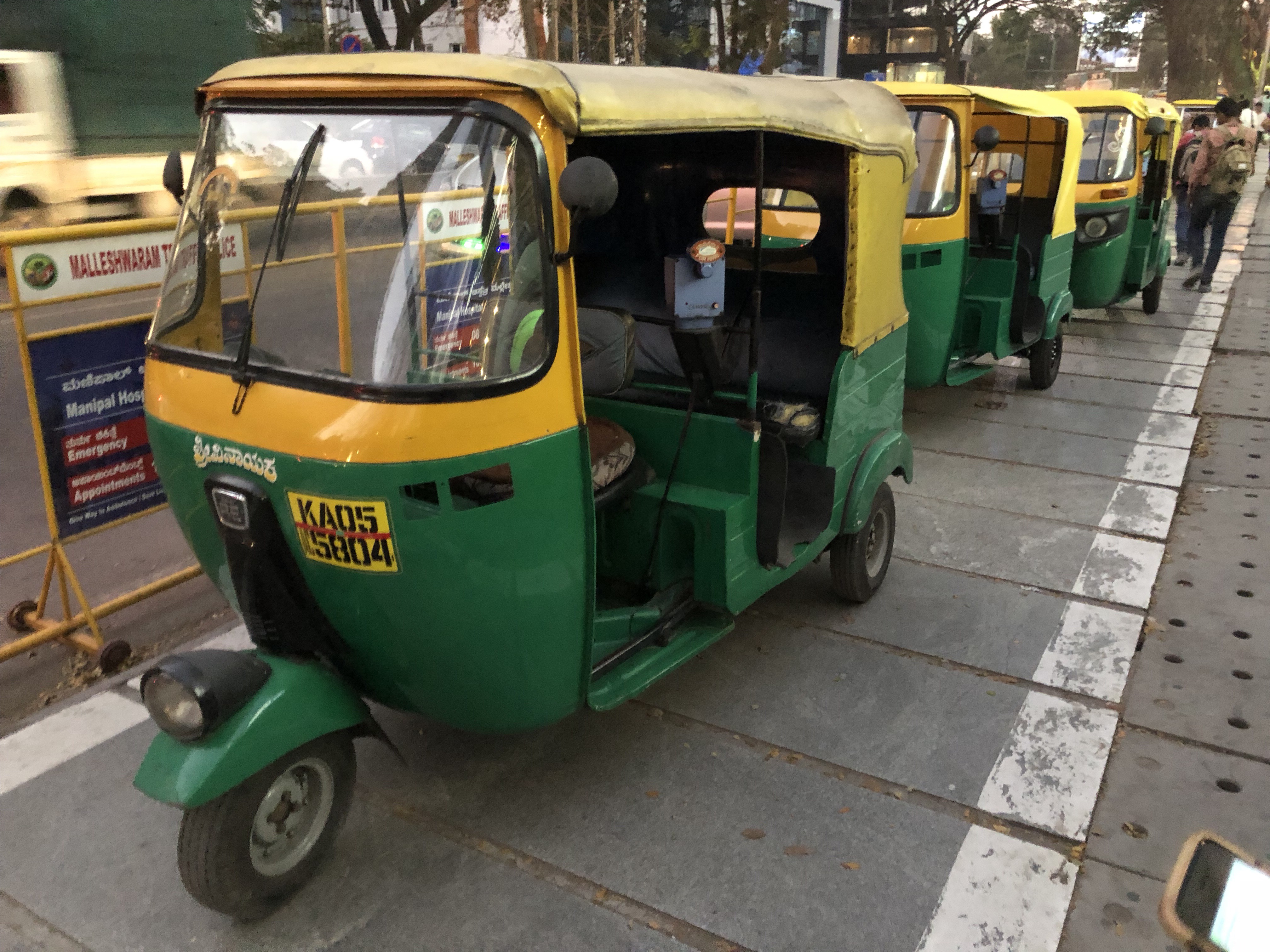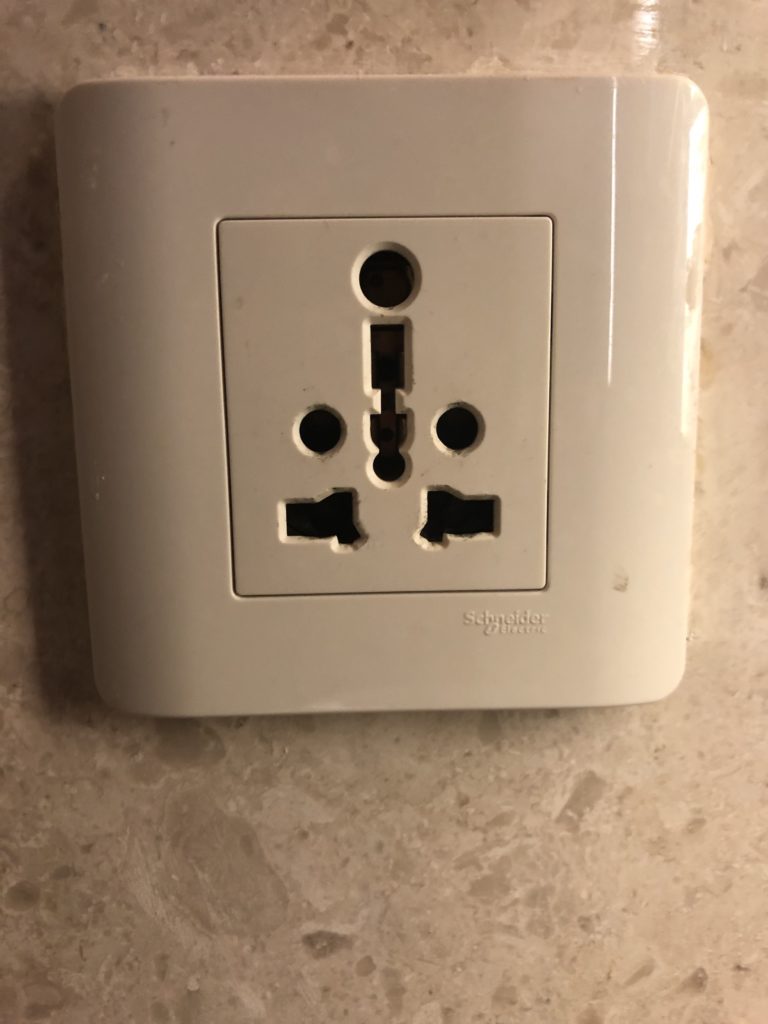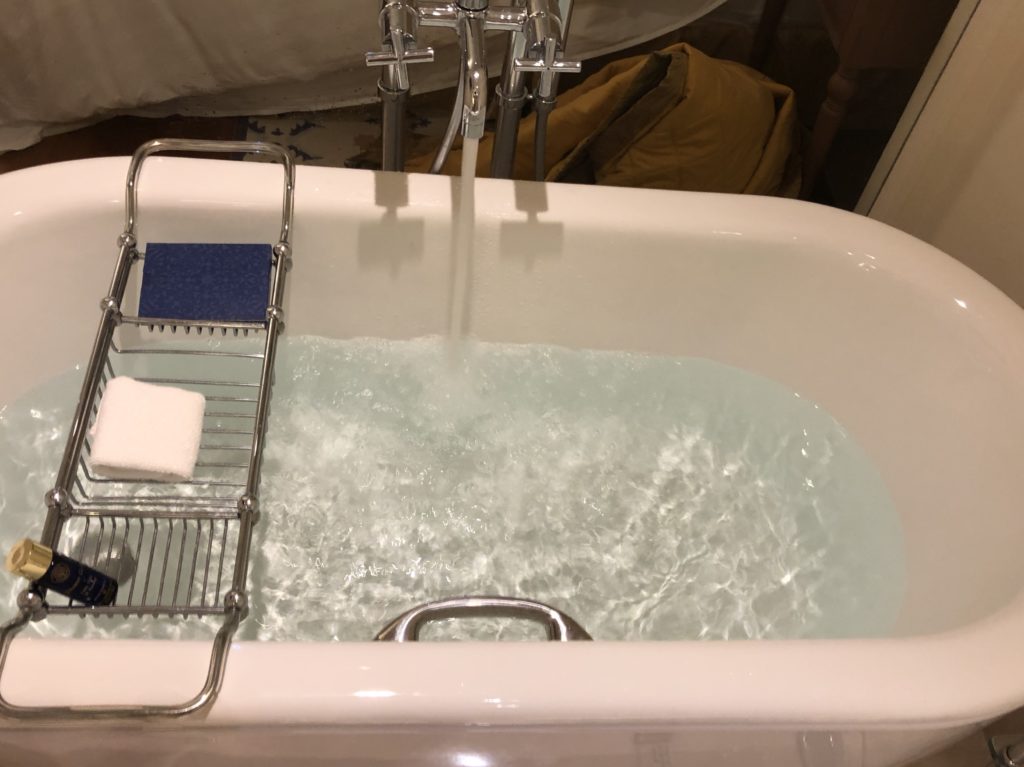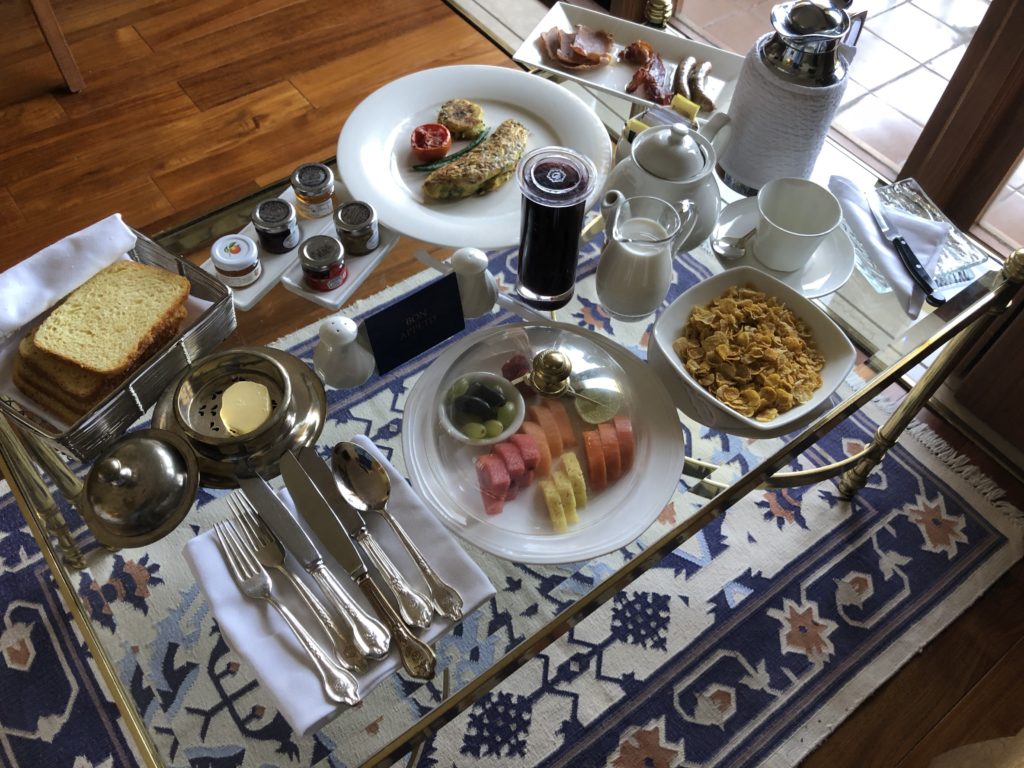I’m sitting on a deck overlooking the city sipping chai masala from a dixie-cup sized paper cup. A convocation of eagles swoops through the sky circling in groups across the skyline buzzing the mostly empty tables in search of an easy snack. I’m told the open piles of garbage rotting on the sidewalks brings rats and the rats bring the eagles. I will be later told to not take my breakfast on my hotel balcony, the server warns that he’s seen eagles fight hotel residents for their breakfast meats. I discover through a little research that the city once had hundreds of indigenous species but that many of the smaller ones have left or died from pollution, even the crows. But the eagles dominate the skies now. Majestic but portentous.
Bengaluru (or Bangalore as the brits called it) is the breathing dream of unregulated growth. The tech industry swept in more than 30 years ago and the explosion of development has left little question as to what would happen if the free market built a city on its own. Traffic five lanes thick on two lane roads not even bothered to have lines painted on them, chokes the city into an ever grinding chaotic miasma late into the night. Drivers with a constant pressure on car horns screeching out an ear splitting cacophony, weaving into an anxiety ballet of perfect organic self-organization. Smog dims the sun. The lack of zoning or almost any restriction piles every type of urban experience right on top of one another. Huts made of sticks on red dirt giving way to crumbling residentials giving way to gleaming mirror high-rise office buildings packed in by commercial spaces, a patchwork of billboards the backdrop for open garbage fires on the sidewalk, from the hopelessly destitute to the opulent city bourgeoisie, from the anachronistically traditional to the ultra-modern of western fashion and fortune, all within the space of a city block. Glimpsed for a moment from the car window, and then gone again into the endless tapestry of contrasts. Water that even long term residents need to boil. And much like my own hometown, the clinging to deeply held families ties slowly losing ground to the inevitable.
The result is a trend towards partitioning, a microcosm of modern lifecycle. Walled compounds with residential structures, an office building, a mall, a hotel, and in the center some sort of social space and maybe a man-made lake. Sounds appealing right? This at first appears to my personal Orwellian nightmare. A claustrophobic biosphere with all the charm of a poorly stocked minibar.
I’m here on business. Staying at the Sheraton beside the Bengaluru World Trade Center. Arriving at the compound’s thick steel gates the hotel shuttle car is scanned for bombs with mirrors on sticks. Before the hotel, another checkpoint where the trunk is searched. Then finally to the hotel where my bags are sent through an Xray machine, me through a metal detector, then hand wanded and pockets turned out. The trade center is directly across the street. So I’m back and forth a lot. Each time it’s the same thing, into the office building, bags go into an Xray machine, metal detector, wand. Back to the hotel, Xray machine, metal detector, wand. Twenty feet away is a 6 story mall. To get into the courtyard in front of the mall you get a full body pat down and a bag search. Every external business, metal detectors, the entrance to the mall, another pat down, bags go into the xray machine, wand. My colleague who grew up here assures me this is quite normal and common across India. Pencil thin jittery 5’ security guards stuffed into tailored uniforms patrol in mass swinging worn batons in circles and aggressively patting them against their hands as they walk, making deep eye contact and generally getting up in your grill. Guards at the landing of every escalator, patrolling the food court. These aren’t your simpleton Paul Blart’s cruising around on Segways. They seem quite serious and I wonder how much lip it would take to get a baton to the liver. There’s like 20 of these little guys running around every floor of the Trade Center constantly patrolling. Needless to say I’m a little put out and ill at ease with this much security. But my colleague says you get used to it. That it makes him feel more safe. And that maybe this is what we need to do in the United States given the state of violence we find ourselves in. We’ll have to agree to disagree.
So far I quite like the people that I’ve meet in Bengaluru. Thoughtful, intelligent, opinionated. I’ve heard more than once that a person did not want to move to the US because the culture was not compassionate enough. That’s a plus to me. And that though Trump is generally regarded as a heartless rube, his authoritarian stance towards Pakistan could be beneficial. Much the way the US prefers authoritarian regimes in the governments it secretly creates. Touché. No one’s invited me out to tour the town on off hours but I find them quite easy to work with and in some ways more so than my own team. We seem to get right down to business.
The media, as far as I’ve seen, seems to be quite macho. The television portrays badass dudes kicking the shit out of bad guys on the regular. Homosexuality is not public. Anal sex is illegal. But there are no social morays around male on male affection. It’s perfectly normal to see guys with arms around each other having a close face to face conversation or holding hands down the foodcourt. Nightclubs filled with almost entirely straight men dancing with each other and having an innocently good time without a hint of hesitation. I find that fascinating from the perspective of my puritanical shame inducing anti affection culture. Especially in the light of my own estrangement from the affection of other men. It just feels strange. Which is kind of strange. It makes me want to learn more about if the media here oversexualizes things as much as the US.
It’s hot but the standard garb is long pants, long sleeve shirts, sometimes a jacket, with sandals. On the streets you find the full gamut of western department store outfits to traditional saris and lungis and everything in between. I am a hopeless stranger here. I couldn’t begin to unravel the cultures and the visual cues that I’m seeing. But I find it stunning all the same.
After an exhausting marathon of a week I book a room at the five star Oberoi on MG road in what I’m told is the area I need to be in, to rest for the weekend before my 24+ hour flight back to Seattle. I think finally, I get to hoof it around town with my camera, eat some street food, take some amazing photos of exotic Indian life, get out of that damn compound I hadn’t ventured out of for 5 days. But out on the city streets it’s a real grind. I stand out like a white pillar with a bullseye painted on my face. The street vendors, the auto-rickshaw drivers, the hustlers paid to direct the tragically touristy into specific shops and areas. They’re all on me and it’s not making me feel relaxed. Every block there’s a life and death situation you have to negotiate sprinting and dodging across traffic that rarely obeys traffic lights or slows down for pedestrians. It’s like a much less fun game of frogger that I really don’t want lose. After my mile walk down MG Road to a joint called the 13th Floor that’s been recommended to me, and a mile walk back I’m feeling wound up. I haven’t taken my camera out once. And the welcoming hush of the Oberoi with its five restaurants and spa and lush green jungle interiors, it’s coy ponds and old world service, I’m happy as a puppy dog to get back to my room. I spend the next day enjoying in-room breakfast service, a hot bath and a 90 minute Swedish massage. I mean it only took me a few days but I totally get the walled microcosm thing. The kind of minimal solace every human needs to survive and make it through another day.
In the end I didn’t really end up liking the city of Bengaluru very much. It was challenging. But it did give me a taste of the complexity and fascination that India has to offer. The great food and interesting people. And an important perspective on city planning and the need for building things in a measured and intelligent way. I hear a lot of bitching about city planning and regulations in Seattle and how the free market will always rise to fill the need of citizens if we just get out of the way. I urge those people to come spend a week in the heart of Bengaluru and bring me back their notes.
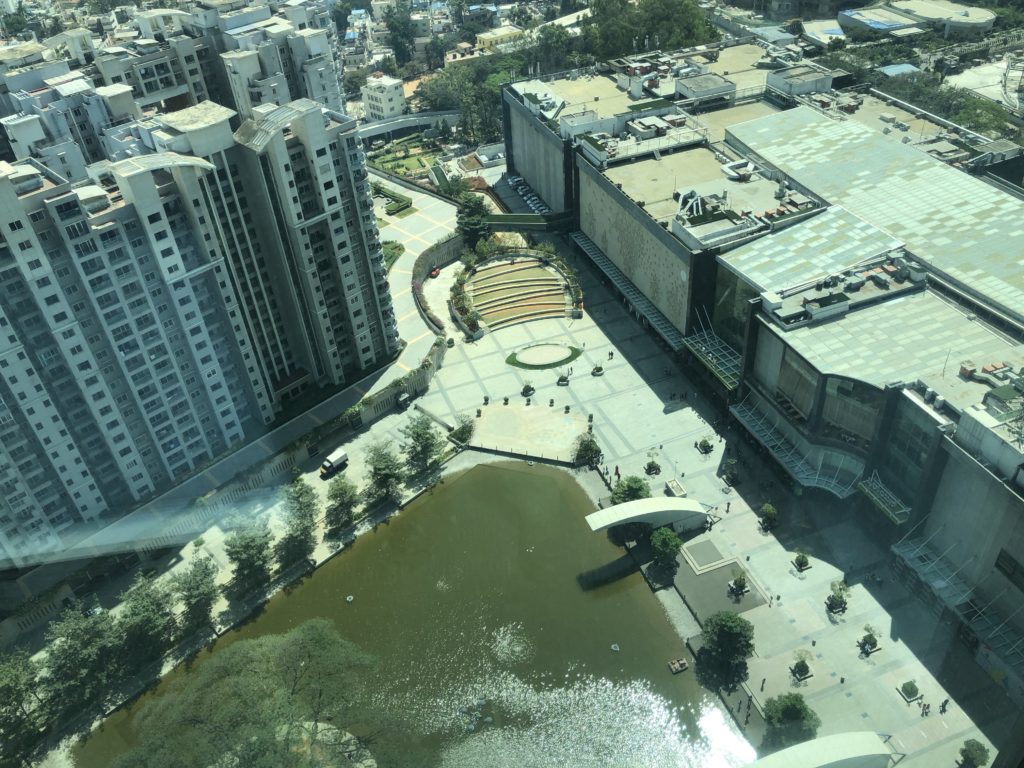
View from the Bengaluru World Trade Center of the compound. On the left are the residential clusters (we’re talking like $450k USD a pop), on the right is the mall (to be fair it’s a nice mall) with it’s public space out front, murky lake, and to the right out of frame is the Sheraton.
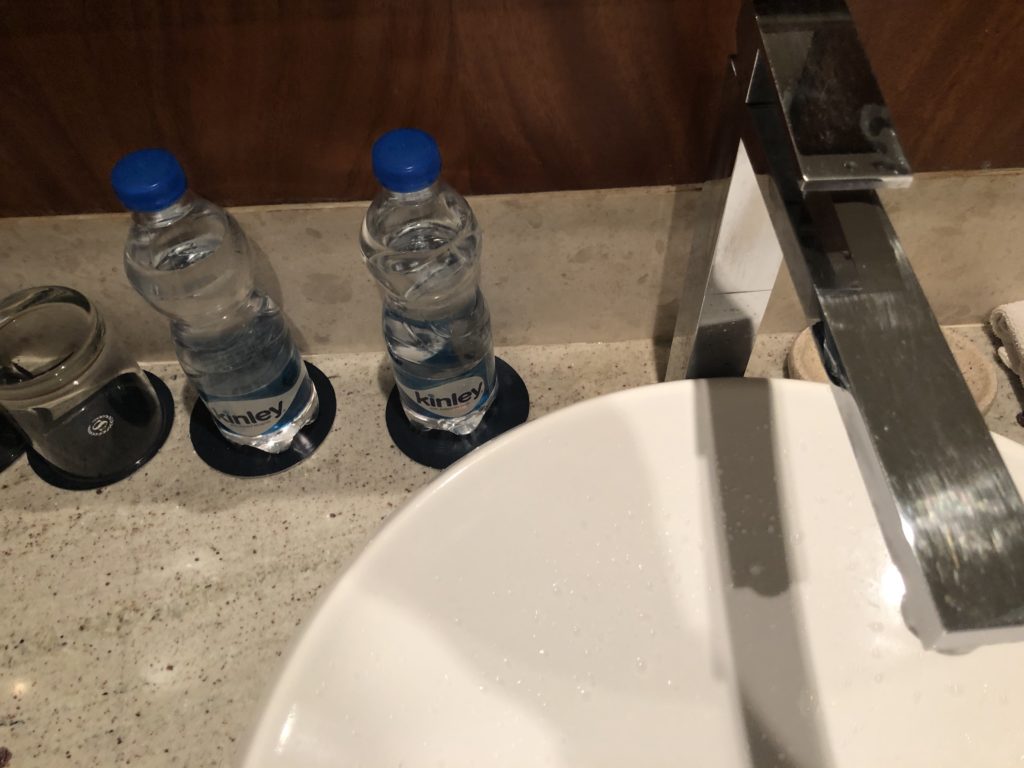
Notice the water provided by the sink. Don’t drink the water or anything that might have tap water in it, or fruit that’s been washed in it. Even the locals have to boil their water. My colleague who was from Bengaluru was way more paranoid than I was and avoided anything remotely suspicious. He also suggested to eat lots of yogurt to help your stomach adapt.
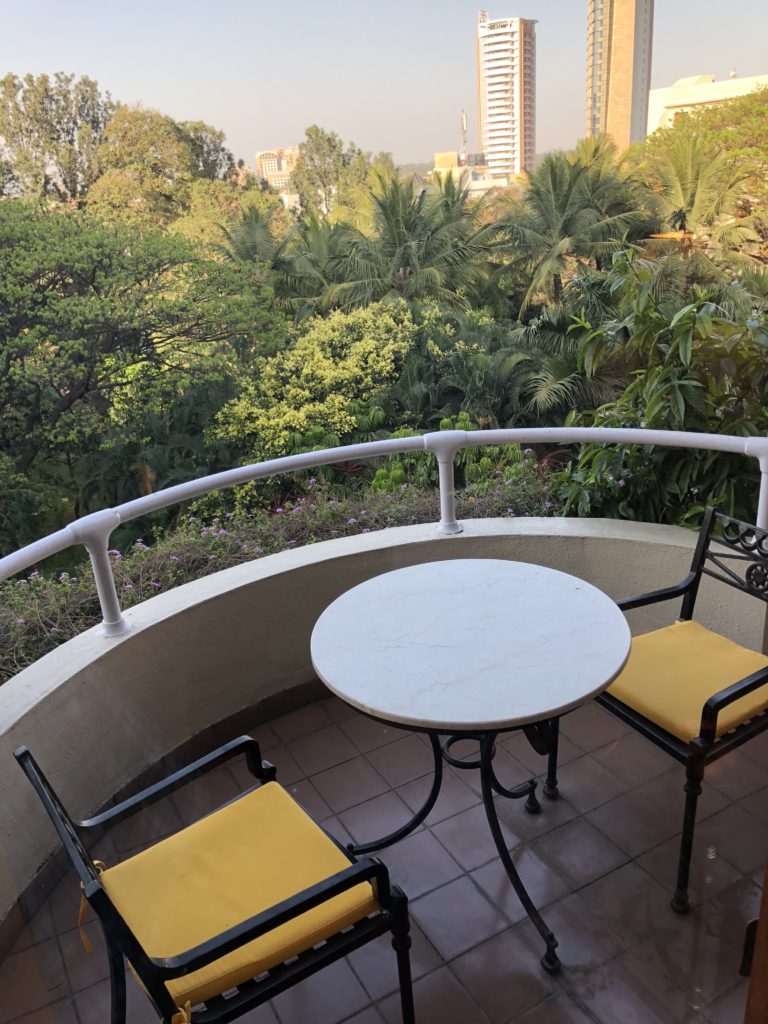
My balcony view from the Oberoi. Imagine the sky just filled with circling eagles. And in the distance a haunting call to prayer. I was quite happy here.

Relaxing in a hot bath instead of fighting the anxiety of the streets. I’m usually firmly against this sort of thing.
